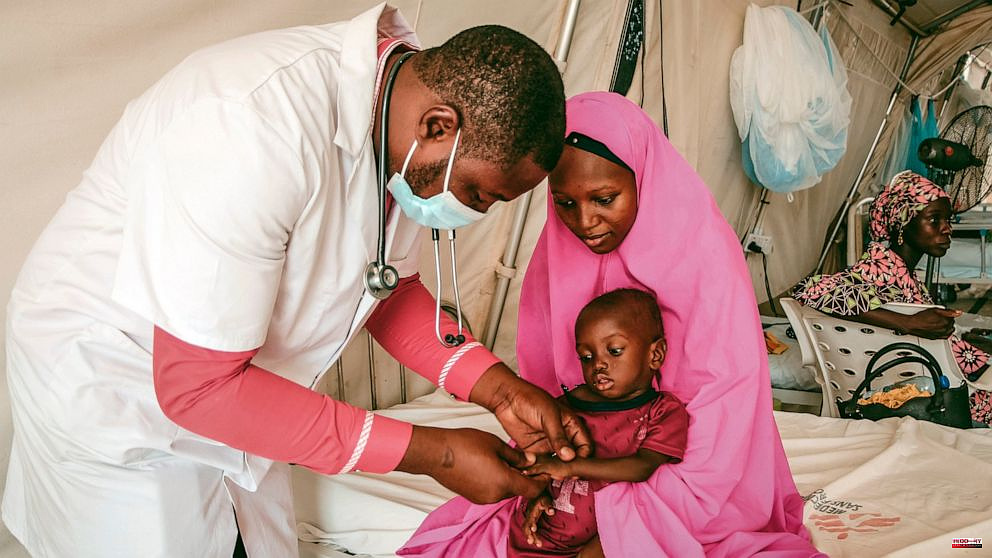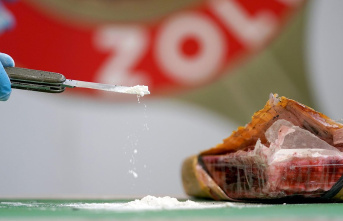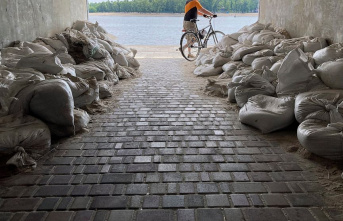ABUJA (Nigeria) -- In northwestern Nigeria, gunmen killed Halima Musa's husband and oldest child four years ago.
She said that the family fled to safety in a camp for displaced persons, but they are now hungry.
She said, "It's been over a year since the government brought food items to us." from Sokoto camp.
It's now 2 p.m., and she's preparing her family's first and only meal of the day. She doesn't know where she will find food the next morning. She said, "I and my kids are often begging."
The escalating violence in Northwest Nigeria has left thousands dead and hundreds of thousands homeless. Musa is one of many who are living in camps with inadequate food.
This violence has contributed to the increase in poverty in this region of West Africa. According to the most recent government statistics, the poverty rate is 40%. It includes some of the poorest citizens of the troubled north.
Many families are forced to leave their farms and choose their livelihoods.
According to Michel-Olivier Lacharite, a French-based medical charity, Doctors Without Borders said that the attacks have "pushed many community to their limits", with approximately 500,000 people being forced to flee.
According to Lacharite, the head of emergency operations, the group will provide food for up to 100,000 children in Nigeria's Katsina State alone this year.
He said that despite alerting the government about the problem, he had not seen the mobilization necessary to prevent a severe nutrition crisis.
Authorities blame armed groups responsible for violence in northwest Nigeria. These are mostly Fulani tribal semi-nomadic herdsmen who are at war with settled farming communities over limited water access. In the northeast of Nigeria, some rebellious herdsmen have joined Islamist extremist rebels to attack remote communities.
According to authorities, violence in the northwest has increased despite the fact that the Nigerian jihadi insurgency has subsided in the northeast.
Murdakai Titus, Nigeria's National Commission for Refugees, Migrants and Internally Displaced Persons, stated that "The government gives them [displaced people] more attention in the northwestern than the northeast"
He stated that the priority given to the Northwest is high for intervention activities by the Commission - including relief materials, livelihood activities and training them to become self-reliant.
The U.N. World Food Program Nigeria Office is committed to preventing acute malnutrition among children. It provides nutritional assistance for children aged 6 months to 23 years. Chi Lael, spokeswoman for U.N. World Food Program Nigeria, stated that aid is also given to breastfeeding mothers in vulnerable households.
Lael stated that malnutrition is still a concern, but that children under five are twice as likely to be malnourished in certain areas than those who are older.
Manzo Ezekiel is a spokesperson for Nigeria’s National Emergency Management Agency. He stated that the agency believes nutrition should be improved for internally displaced people.
Hannatu Ahmadu, her four children and their mother were forced to flee after gunmen attacked Takwo village in Munya region of Niger state. They found safety, but don't have enough food.
"As I speak to you, we haven't been able harvest our crops and are currently starving," she said to AP from Munya displacement camp, Niger state, which borders Abuja, Nigeria’s capital.
Ahmadu stated that it is difficult for her to feed her children because of the irregular delivery of food aid. She said, "We only eat once per day."












